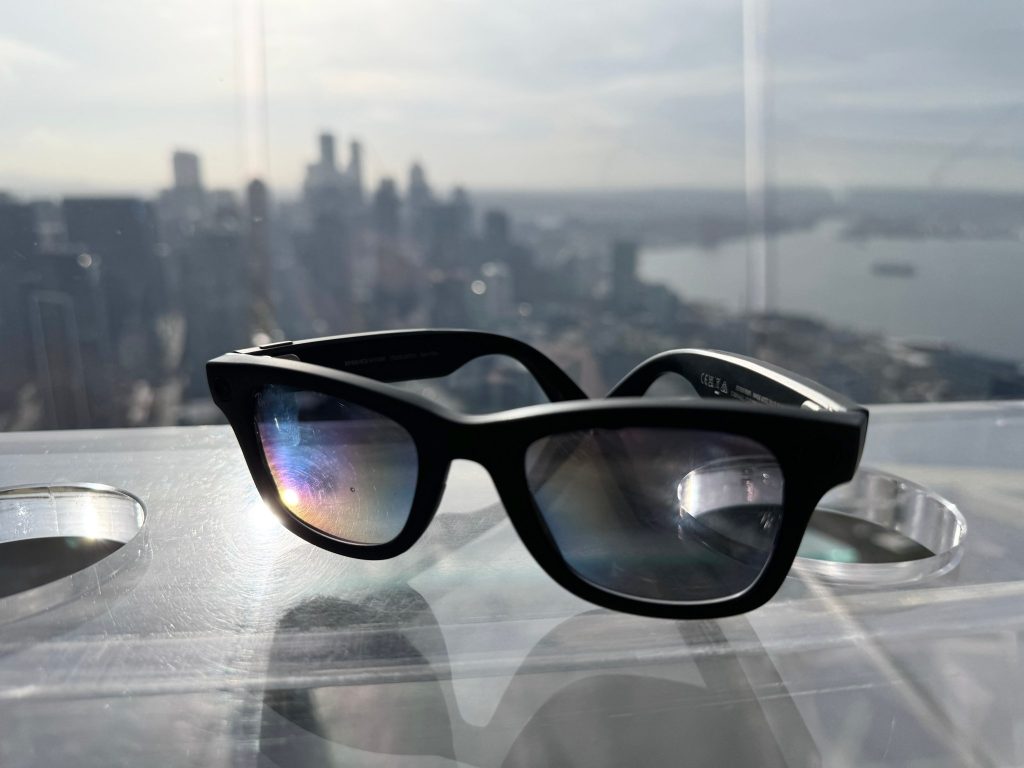Meta has begun introducing select AI features to users of its Ray-Ban Meta augmented reality (AR) glasses in France, Italy, and Spain after a short delay. The rollout marks a significant expansion of the company’s AI-enabled technology into European markets.
Starting now, users in these countries can activate Meta’s AI assistant, known as Meta AI, using voice commands. The assistant can provide answers to a variety of general questions, such as suggestions for gifts suitable for children aged six and eight. As part of this update, Meta AI now supports French, Italian, and Spanish in addition to English.

In a blog post, Meta explained, “Since our launch in September 2023, we have been working diligently to ensure that Ray-Ban Meta glasses comply with Europe’s complex regulatory system. We are excited to begin introducing Meta AI and its innovative features to parts of the EU and look forward to expanding to additional European countries soon.”
Limited Features in Europe
While this update brings new capabilities to European users, some advanced features available in other regions remain unavailable. For instance, the multimodal features accessible in the U.S., Canada, and Australia are not part of the European rollout. These features allow users to receive information about objects or landmarks visible through the glasses’ camera, such as identifying a monument or landmark. Meta has stated that it is working to bring these multimodal functionalities to more countries in the future.
Navigating Regulatory Challenges
Meta’s cautious approach to expanding its AI-powered glasses in Europe stems from concerns about compliance with the European Union’s regulatory environment, including the forthcoming AI Act and the General Data Protection Regulation (GDPR).
The AI Act is a comprehensive legal framework designed to regulate the use of artificial intelligence across various industries. Meta has criticized the law’s implementation, calling it “too unpredictable.” Additionally, the GDPR poses challenges for AI development, particularly in the context of training AI models. Meta’s AI systems, including those used in the Ray-Ban Meta glasses, are trained on publicly available data from Instagram and Facebook users. However, in Europe, this type of data is protected under GDPR rules, especially for users who have not explicitly opted in.
Earlier this year, EU regulators requested that Meta temporarily halt training its AI models using data from European users while an assessment of GDPR compliance was underway. In response, Meta paused its training activities but also signed an open letter advocating for a more “modern interpretation” of GDPR that would not hinder technological progress.
Recent Developments and Expansion
In the early fall, Meta announced that it had resumed training its AI models using data from U.K. users. This decision came after Meta incorporated feedback from regulators into a revised opt-out process for data usage. Following this adjustment, the company introduced some AI capabilities to Ray-Ban Meta glasses in the U.K. and six other countries. However, Meta has not provided a detailed update on how it plans to manage AI model training across the broader European Union.
Despite these challenges, Meta continues to emphasize its commitment to complying with European regulations while bringing cutting-edge technology to its users. The current rollout in France, Italy, and Spain represents a step forward in that effort, even as broader compliance issues with the AI Act and GDPR remain unresolved.
Looking Ahead
Meta’s AR glasses, featuring AI capabilities, reflect the company’s ambition to redefine wearable technology and integrate advanced AI into everyday life. While the rollout in European markets is currently limited in scope, it highlights Meta’s willingness to adapt to regional regulatory requirements and work toward broader availability.
The next steps for Meta will likely involve expanding its multimodal features to European countries and addressing ongoing regulatory concerns. As AI legislation in the EU evolves, Meta’s ability to navigate these challenges will be crucial to the future success of its AI-powered products in the region.
